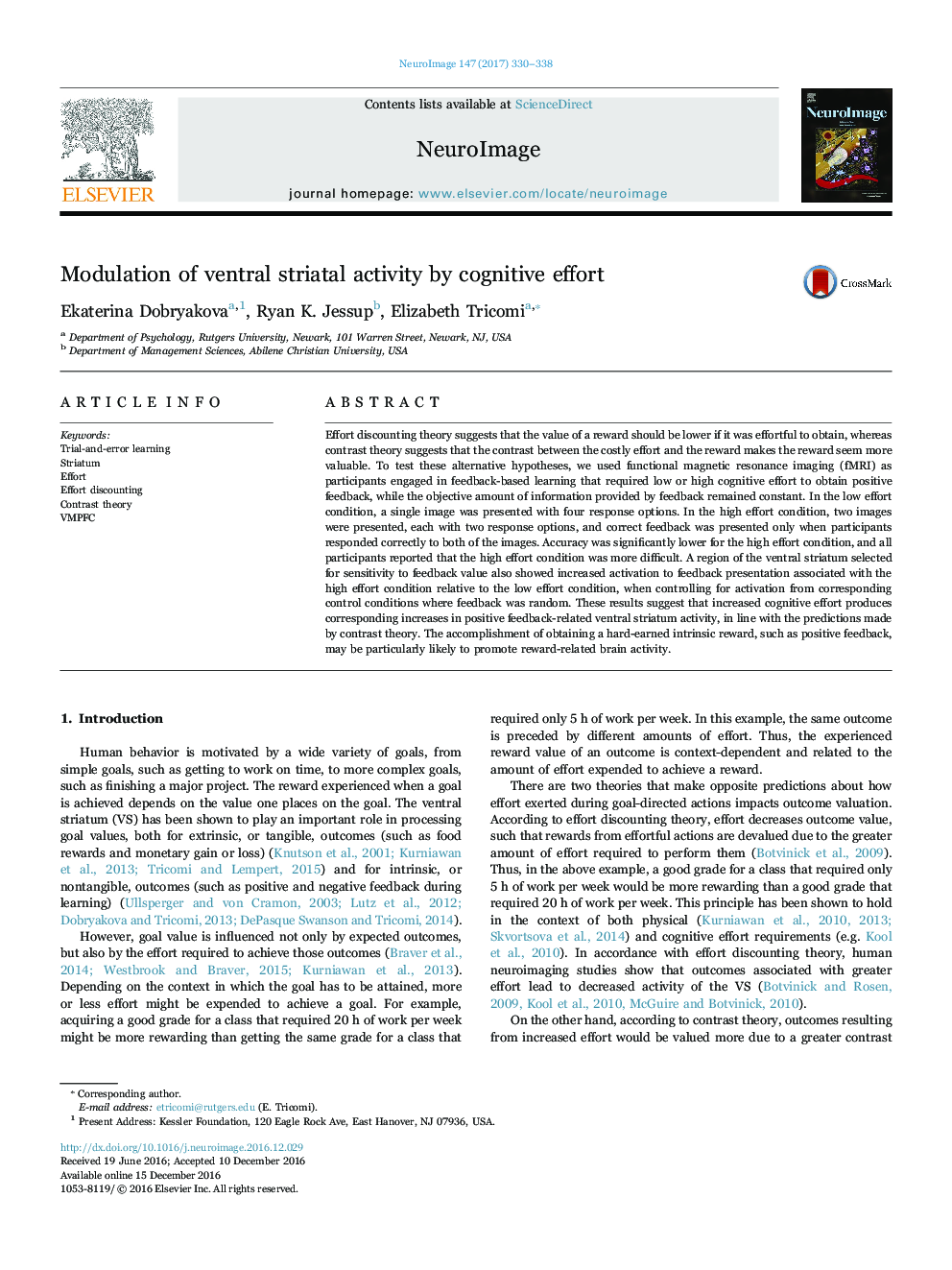| Article ID | Journal | Published Year | Pages | File Type |
|---|---|---|---|---|
| 5631508 | NeuroImage | 2017 | 9 Pages |
â¢We examined performance on feedback learning task with low/high cognitive effort.â¢The ventral striatum showed sensitivity to high vs. low effort feedback.â¢High cognitive effort leads to positive feedback-related ventral striatum activity.
Effort discounting theory suggests that the value of a reward should be lower if it was effortful to obtain, whereas contrast theory suggests that the contrast between the costly effort and the reward makes the reward seem more valuable. To test these alternative hypotheses, we used functional magnetic resonance imaging (fMRI) as participants engaged in feedback-based learning that required low or high cognitive effort to obtain positive feedback, while the objective amount of information provided by feedback remained constant. In the low effort condition, a single image was presented with four response options. In the high effort condition, two images were presented, each with two response options, and correct feedback was presented only when participants responded correctly to both of the images. Accuracy was significantly lower for the high effort condition, and all participants reported that the high effort condition was more difficult. A region of the ventral striatum selected for sensitivity to feedback value also showed increased activation to feedback presentation associated with the high effort condition relative to the low effort condition, when controlling for activation from corresponding control conditions where feedback was random. These results suggest that increased cognitive effort produces corresponding increases in positive feedback-related ventral striatum activity, in line with the predictions made by contrast theory. The accomplishment of obtaining a hard-earned intrinsic reward, such as positive feedback, may be particularly likely to promote reward-related brain activity.
